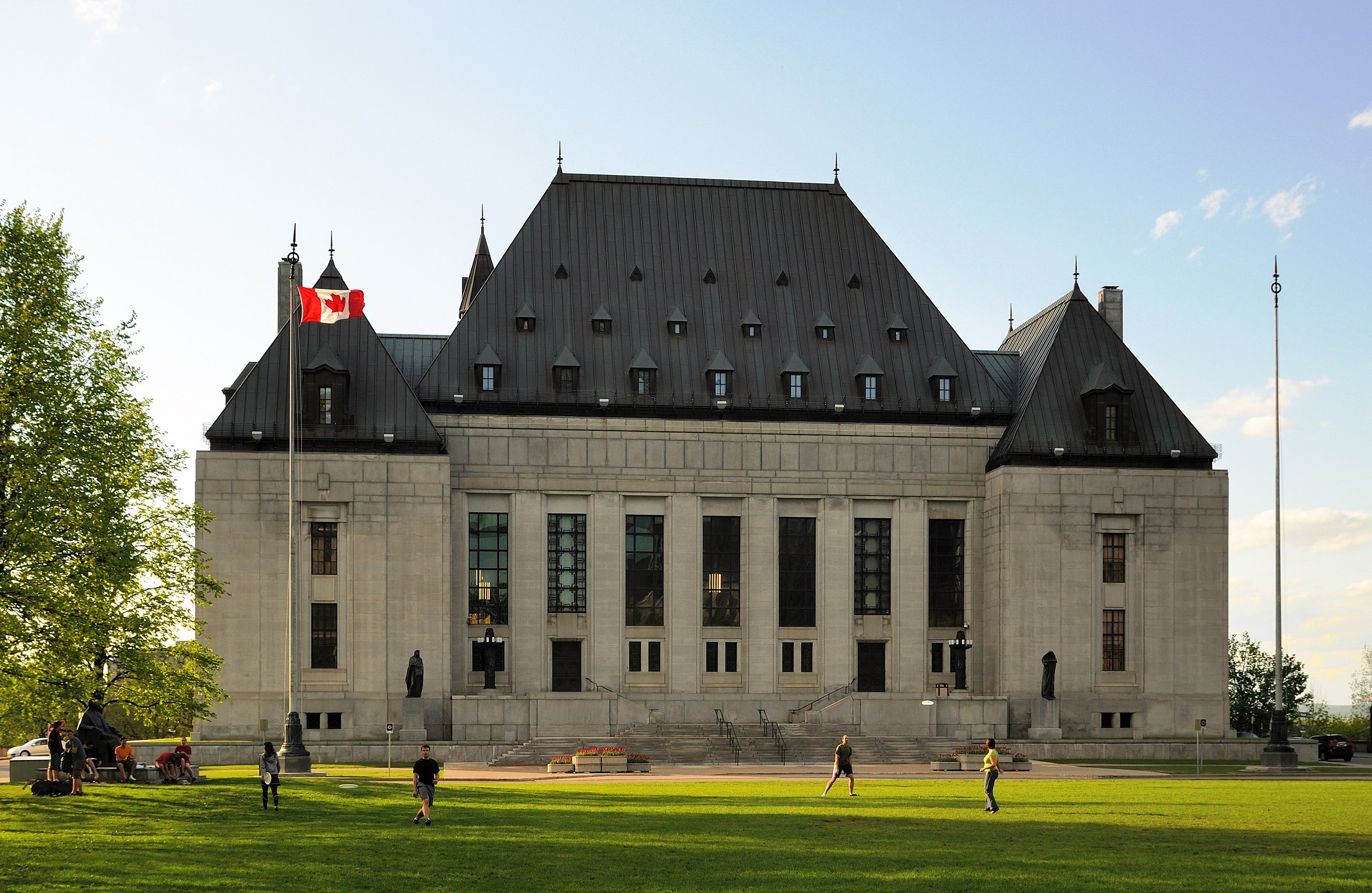
- Details
- By Jenna Kunze
OTTAWA, Canada — Ten years ago, Rick Desautel, a member of the Lakes Tribe of the Colville Confederated Tribes (CCT) in Washington state, shot an elk in a subsistence hunt on what was once his people’s traditional land—on the other side of the border in British Columbia, Canada.
When he reported the hunt to local officials, Desautel was charged with hunting without a license and hunting big game without Candian citizenship, according to court documents. He was twice acquitted by lower courts, who argued that Desautel had been exercising his constitutionally protected right to hunt in the traditional territory of his Indigenous community, the Sinixt people who historically resided in Canada. But the Candian government appealed on the basis that Desautel’s tribe did not meet the threshold of continuity of practice to establish an “Aboriginal right” under the Canadian constitution.
Last Friday, Desautel was vindicated once and for all when the Canadian Supreme Court ruled that Native Americans whose territory straddles the international border can claim Aboriginal rights in Canada, even if they aren’t residents or citizens.
“It’s been a long time coming,” said CCT councilwoman and chair of the tribe’s Culture Committee, Karen Condon. “It's such a relief to know that Canada, as well as the U.S., have come quite a ways with regard to how they treat Indigenous people. By winning the decision in the Canadian Supreme Court, it shows that Canada is more receptive to working with tribal people. That in and of itself is a huge victory.”
The Lakes Tribe is made up of descendants from the Sinixt people, who lived in British Columbia at the time of first recorded contact by Europeans in 1811, a trial judge noted in court documents. Eventually, the majority of Sinixt people moved south and established roots in what is now Washington state. By 1902, only 21 Sinixt people remained in their traditional territory when the Canadian government established the Arrow Lakes Band, composed of Sinixt, Ktunaxa and Secwepemc members. Half a century later, Canada proclaimed the Arrow Lakes Band extinct after the last band member died, though most of its ancestors still lived on the opposite side of the border.
Tribal nations across the U.S.- Canada border are celebrating the implications this case will have on their own communities.
“I hope that, given our win, that this is opening the doors for other First Nations and tribes to be able to move more freely back and forth over the border,” Condon said. “Not only the northern border, but also the southern border… for all of them to do these activities that are culturally embedded in their body and soul.”
Further north from the Lakes Tribe, in Alaska, the Chilkat Indian village of Klukwan sits 18 miles south of the Canadian border, severing many Chilkat Tlingit tribal members from their relatives.
According to one Alaska Native Tlingit, Tony Strong, a member of the Eagle-Wolf clan, the implications of Canada’s Supreme Court ruling are a step towards reestablishing relationships across the border.
Though many of the tribal nations are still connected, Canada’s border crossing limits certain types of saleable items, even in the case of traditional use. Strong said border checks inhibit what Alaska Natives can bring to potlatch ceremonies in Canada.
“We have a lot of relatives, family, up in Canada who we’ve done a lot of trading with over the years,” Strong told Native News Online. “Going up there I might be wanting to carry a cooler full of king crab, things that they don’t have access to, and we want to trade with them.”
As a result of the Supreme Court verdict, Strong said the tribe hopes to be able to come and go freely through the Candian border without being questioned, or to potentially show a tribal affiliation card in place of a passport at the manned border crossing.
“I think that's a possibility,” Strong said. “And it’s certainly an Aboriginal right to be able to go past the border established by the European community—to be able to go back and forth visiting your family without having to ask special permission.”
More Stories Like This
Indian Gaming Association Condemns CFTC Over Prediction Markets, Warns of Threat to Tribal SovereigntyCommittee Advances 20% Increase to Navajo Child Support Guidelines
Navajo Committee Advances $84M Transportation Improvement Plan
NCAI Passes Two Emergency Resolutions on Immigration Enforcement Activities
Chickasaw Lighthorse Police Officer named Indian Country Law Enforcement Officer of the Year
Help us defend tribal sovereignty.
At Native News Online, our mission is rooted in telling the stories that strengthen sovereignty and uplift Indigenous voices — not just at year’s end, but every single day.
Because of your generosity last year, we were able to keep our reporters on the ground in tribal communities, at national gatherings and in the halls of Congress — covering the issues that matter most to Indian Country: sovereignty, culture, education, health and economic opportunity.
That support sustained us through a tough year in 2025. Now, as we look to the year ahead, we need your help right now to ensure warrior journalism remains strong — reporting that defends tribal sovereignty, amplifies Native truth, and holds power accountable.
 The stakes couldn't be higher. Your support keeps Native voices heard, Native stories told and Native sovereignty defended.
The stakes couldn't be higher. Your support keeps Native voices heard, Native stories told and Native sovereignty defended.
Stand with Warrior Journalism today.
Levi Rickert (Potawatomi), Editor & Publisher

